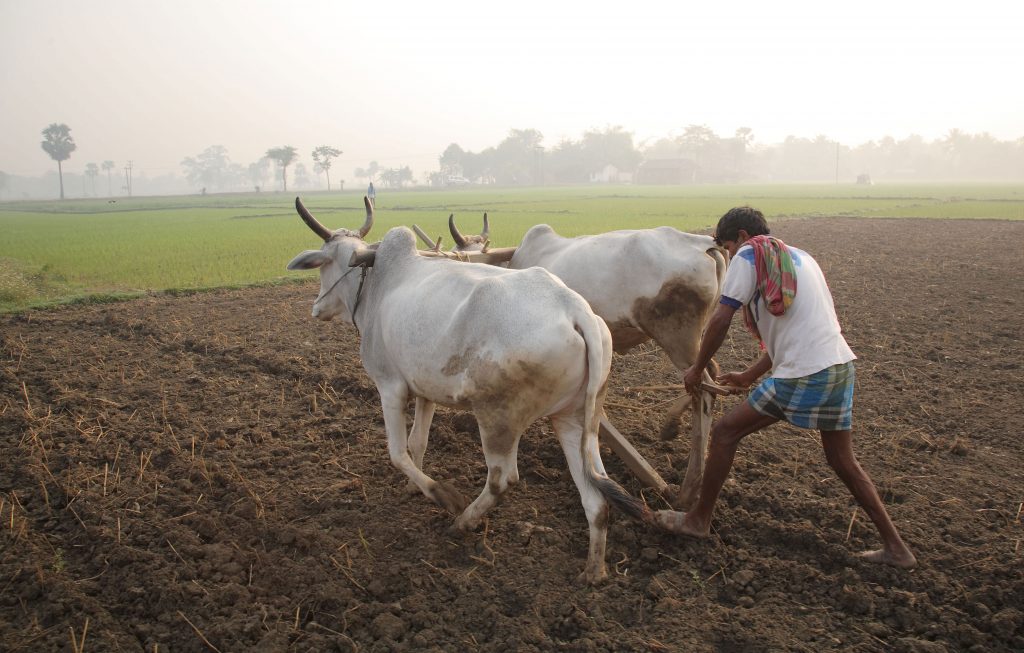
- Indian farmers today face tremendous barriers and restrictions in the marketing of their produce. Byzantine laws make it mandatory for them to sell their produce in notified APMC market yards.
- There are barriers to the free flow of agricultural produce between various states owing to the prevalence of multiple APMC legislations enacted by various state governments.
- The biggest losers with the implementation of these reforms will be the middlemen, commission agents, mandi agents and wholesalers currently running the state backed APMC
- The present government understood the need for change in this system and hence bought in two bills which have the potential to bring in transformational changes in the agricultural sector.
- New Agricultural bill will help farmer discover better prices through the sale of his produce anywhere in the country. These reforms will open up many private mandis which are far more efficient, automated and mechanized.
“Never let a good crisis go to waste” – Winston Churchill
Indian agriculture and Indian industry have been governed by archaic laws and procedures predominantly because of the general apathy in our bureaucracy which firmly believes in what the late Prime minister Shri Narsimha Rao once said “Inaction is also a type of action”. For a brief period out of sheer desperation and a firm political will, Indian bureaucracy was forced to act in 1990/91 and then again during the Vajpayee regime.
The Covid pandemic has exposed many fault lines in the way our economy and agriculture sector function. The present government understood the need for change in this system and hence bought in two bills which have the potential to bring in transformational changes in the agricultural sector. These two bills are aimed at structurally changing the way this sector currently operates. Bharat’s agriculture sector has suffered immensely over the years due to mere grandstanding of the political class. Multiple schemes were announced which never saw a ray of light. Our mandis were run by middlemen/Arahtiyas who in turn were run by their political bosses. All this causes immense suffering to the Indian farmer.
Need for the farm laws

Our farmers today face tremendous barriers and restrictions in the marketing of their produce. Byzantine laws make it mandatory for them to sell their produce in notified APMC market yards. On top of that, they can sell only to registered licensees of the state government. This system leads to a sort of license raj. Money is exchanged to get these licenses registered and then license holders manipulate market prices to recover the amount they have paid to acquire the license.
Furthermore there are barriers to the free flow of agricultural produce between various states owing to the prevalence of multiple APMC legislations enacted by various state governments.
What will the Farm laws achieve
This farm laws will give both the farmers and buyers a freedom of choice relating to the sale and purchase of the produce. Inter-state trade of agricultural products will become much easier. The biggest benefit of these reforms will be opening of choices for farmers. Through these reforms electronic trade through the electronic trading transaction platform will now become a possibility ensuring seamless trade. These laws aim at creating “One India, One agricultural market”.
Indian agriculture has many unique problems. One of them is that a certain product is grown in the northern part of the country but processing of that product is in the southern part of the country. One example that comes to mind is that of maize. Maize is very widely grown in Bihar whilst the southern state of Tamil Nadu has a bulk of the processing units. In such a scenario farmers in Bihar sell their maize at low rates whilst processing units in TN buy maize at a hefty price leaving the middleman to benefit. This bill through ‘One India One agricultural market’ will address such issues.
Eliminating hurdles

The biggest point of contention, raised by detractors of these laws is that the MSP system will be diluted. But the government time and again has said these laws have been brought in to compliment the MSP system and not replace them.
The biggest losers with the implementation of these reforms will be the middlemen, commission agents, mandi agents and wholesalers currently running the state backed APMC. This set of people have their own interests which they will lose out on. Industry experts have gone on record to say trades between farmers and the vested interests in most cases are not geared to favour the farmer. Farmers need to pay fees to APMC, a lot of paperwork involved in transactions, and prices are decided in secrecy by commission agents and wholesalers leaving the farmer in the lurch.
To conclude the new Agricultural bill will help farmer discover better prices through the sale of his produce anywhere in the country. These reforms will open up many private mandis which are far more efficient, automated and mechanized, opposition to these reforms seem politically motivated aimed at keeping India backward and its farmers poor, these reforms will lead to a spate in the creation of Farmer producer organisations, these section 8 companies will give small and marginal farmers the tools to compete in an ever changing business environment
The government cannot back down or be cowed down now as too much is at stake. The Prime minister can take solace in the example of Mrs Margaret Thatcher who faced similar opposition in Britain when she modernized the British economy when she was the most vilified politician of her time but today she is universally known as the ‘Iron lady of the western world’.
(Disclaimer: The views expressed in this article are author’s own and does not necessarily reflect the views of SamvadaWorld)
